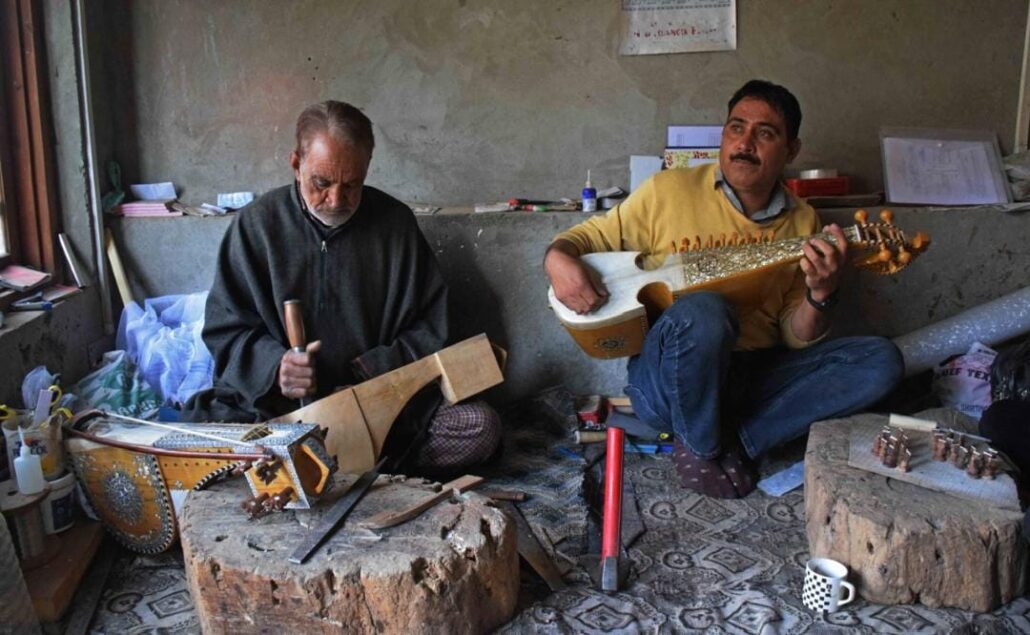
In the heart of central Kashmir’s Budgam district, 65-year-old Khizr Mohammed Dar has spent over five decades nurturing the delicate art of crafting traditional Kashmiri musical instruments.
From the Rabab to the Santoor, Sarang, and Saitaar, Khazir’s hands have breathed life into instruments that echo the region’s rich musical legacy, Kashmir News Observer reported.
Yet, despite growing demand, Khizr faces an uphill battle against a dwindling pool of artisans and waning interest from younger generations.
Khizr’s journey began under the influence of his father, Mohammad Shaban Dar, a celebrated singer.
“My father’s passion for music inspired me to delve into this craft,” he shared. Starting as a self-taught artisan, Khizr honed his skills locally and eventually established a workshop that became a hub for training apprentices.
“I’ve been in this trade for 50 years. With dedication, I earned a livelihood and respect,” he said.
Currently, his workshop employs around ten artisans, including his son, Mushtaq Ahmad, who is determined to carry forward the family legacy.
However, Khizr’s efforts are hampered by a lack of quality materials and the dwindling number of skilled craftsmen.
“Many artisans who upheld this tradition have passed away, and the younger generation shows little interest. This craft requires immense patience, which, unfortunately, is in short supply today,” he lamented.
Despite these challenges, his instruments are in demand across India, cherished by both local and non-local customers. “Our traditional instruments are still appreciated, but the number of skilled craftsmen is decreasing,” he noted.
While his dedication has earned recognition from the Handicrafts Department, he expressed frustration over the lack of broader support.
“Six months ago, the Handicrafts Department acknowledged my work. But apart from that, there has been no help. It feels like those without real knowledge of this craft receive appreciation, while genuine efforts like mine go unnoticed,” he remarked.
Khizr appealed to the government to take meaningful steps to revive this dying art form. “We need programs to encourage young people to learn this craft. If we don’t act now, this beautiful tradition will vanish forever,” he warned.
For Khizr, every instrument crafted is a testament to Kashmir’s cultural soul—a soul he is determined to preserve despite the odds.
“This isn’t just my livelihood; it’s my life’s work, my way of keeping our heritage alive,” he said with quiet resolve.
As the strains of the Rabab fade into the valley’s crisp air, Khizr Mohd Dar’s story serves as a poignant reminder of the fragility of tradition and the urgent need to protect it.




